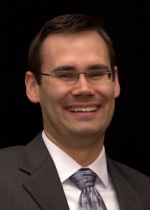
How to Change Health Policy at the State Level: A Q&A with Paul Korte

Paul Korte, PhD
How are behavioral scientists changing health policy in their home states? That's the topic of a breakfast roundtable that the Society of Behavioral Medicine's (SBM's) Civic and Public Engagement Committee (CPEC) is hosting on March 31 at the upcoming SBM Annual Meeting. CPEC recently interviewed one of the roundtable panelists: Paul Korte, PhD, president-elect of the Missouri Psychological Association (MOPA).
Dr. Korte discussed his efforts to get the Missouri Medicaid program to accept health and behavior reimbursement codes.
CPEC: What policy issue have you taken on and why?
Korte: Our primary focus has been on getting health and behavior reimbursement codes accepted under the state Medicaid program. These reimbursement codes can play a significant role in the delivery of integrated care. The health and behavior codes were created in 2002 with the help of the American Psychological Association in order for behavioral health providers to bill services when working with physically ill patients. These codes are used when focusing on the behavioral components of physical health such as compliance issues, particularly when there is no appropriate mental health diagnosis. Missouri's Medicaid program has limited the use of these codes and blocked their use in other locations such as hospitals. They do this despite growing research support for improved patient outcomes and cost savings that come from the use of these interventions and codes. MOPA is trying to change this by creating a statute in state law requiring the reimbursement of these services.
CPEC: What progress has been made on the issue?
Korte: Every year our legislative efforts have gone farther. Last year, we felt confident that our health and behavior codes bill would pass but, unfortunately, partisan politics all but shut down the state senate at the end of the legislative session over an unrelated controversial bill. We are now in our fourth year of advocating for the use of health and behavior codes. We continue to have bipartisan support and count other health care providers as advocates. This year we have also made greater efforts to develop relationships with other state-level professional organizations to help promote behavioral medicine in the hope that we can work together on additional policy concerns.
CPEC: What were some lessons learned?
Korte: Advocacy is not a sprint-it's a marathon. There are so many competing agendas that it can often feel like you are being overlooked. I have learned, though, that you have to continue bringing your issues forward and constantly develop relationships with legislators and their staff. I've also learned that you have to make the issues personal. As scientists, we can focus a lot on numbers and statistics, but most legislators are not researchers. Anecdotes can go against everything we learn in graduate school, but people respond to the power of a story. If we can turn research and statistics into something more tangible, we will have policymakers who believe in the issues as much as we do.
CPEC: What advice do you have for early-career behavioral scientists trying to impact policy at the local or state level?
Korte: It really boils down to just doing it. A local and/or state organization is a great way to start in advocacy as they are often smaller, making it easier to network and connect with those in leadership. They may also have mechanisms in place for advocacy such as a legislative or advocacy committee. Volunteer for the committee. I believe I am far more comfortable with advocacy efforts because I simply started attending events and talking to more senior colleagues. There were times that I did not have a specific interest in a topic, but I went anyway to listen to colleagues speak with elected officials and witness them testify in front of legislative committees. This modeled for me what the process looked like and how I could do it. I think it is easy for an early-career professional to feel a bit intimidated. However, a valuable piece of advice I was given is that we are the experts in our field; the legislator or policymaker is not. We can always identify a colleague who has greater expertise than us in a given area, but that does not mean that we aren't experts in our own right.